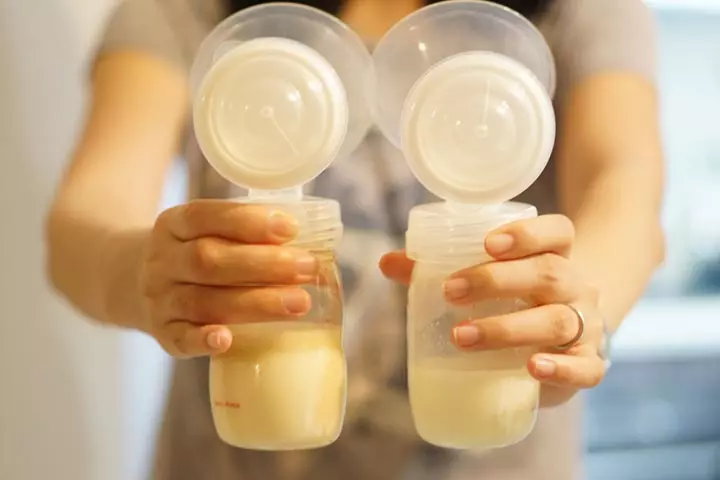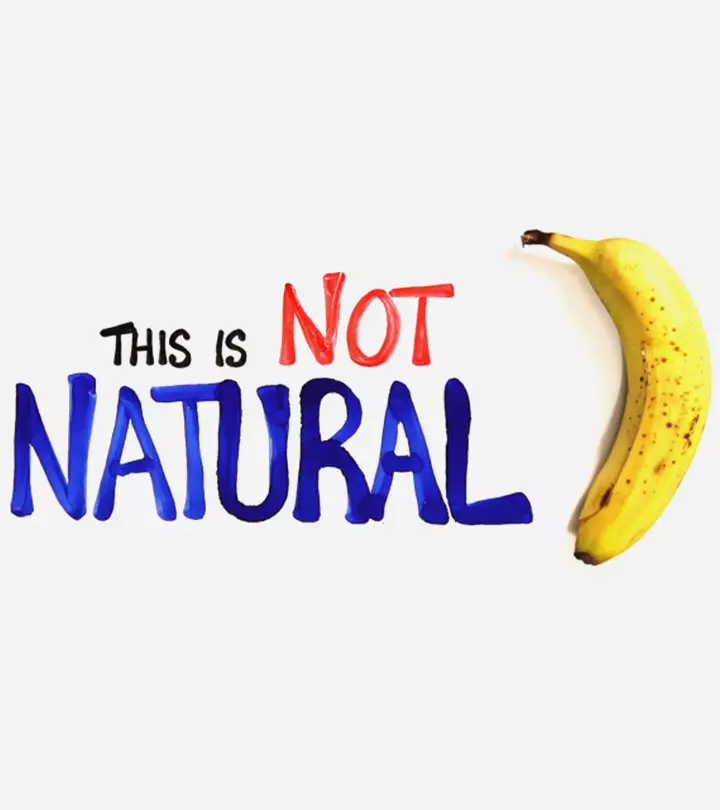
Image: Shutterstock
Through the nine months of pregnancy and the months after childbirth, when you are breastfeeding, you’ll have to give up on a lot of things for the benefit of your baby and yourself. This includes many food items, medications, and most importantly, alcohol. While the jury is pretty clear when it comes to avoiding smoking during pregnancy, drinking alcohol can be a topic that is not easily agreed upon at times. There are several schools of thought when it comes to alcohol and breastfeeding. Some say it’s a strict no, while others say you can do it in moderation. And then, there are others who would suggest the tactic of expressing milk into bottles before grabbing a drink. With so many views on whether to drink or not, lactating mothers can get really confused. Well, this is where we try to give you a clearer and definitive answer on how to go about drinking when you are lactating. So, let’s dive in and get to know more about the effects of alcohol on mother and child:

Can You Drink Alcohol When Breastfeeding?
What you eat and drink can significantly affect your little one during the course of your pregnancy and when you’re breastfeeding. According to the Centers for Disease Control And Prevention, it is best that you refrain from drinking alcohol when you are nursing your child. Having said that, medical experts also mention that moderate consumption of alcohol should not be a problem. It is recommended to leave a gap of at least two hours between drinking and breastfeeding (1). As such it is important that when you do drink, keep a good track of the drinking hour and breastfeed your child only when the effect of alcohol seems to wear off.
What Exactly Is Moderate Consumption?

Image: Shutterstock
When we say “moderate consumption”, we generally refer to an amount that is considered harmless during breastfeeding. To be more precise about this quantity, we mean one standard drink in twenty-four hours. When you go over this limit, you put your baby and yourself at risk. It’s okay to enjoy one drink, provided you stick to just one in a day. However, this is in no way an encouragement to resort to regular drinking. Think of it as a cheat meal that you get to indulge in every once in a while when you absolutely crave some. You need to know that when you drink alcohol, it reaches your baby through your breast milk. Although your baby will be exposed to only a limited amount of alcohol passed on from you, there is something else that can be worrying — it stays longer in your baby’s body than it does in yours (1). In infants, metabolizing alcohol is a slow process and can take double the time it does in adults (2).
What Impact Can Alcohol Have On A Nursing Child?

Image: Shutterstock
The safest option is to not consume alcohol at all when you are breastfeeding. But if it is something you absolutely must do, then the next best option is to stick to just one glass of drink. We’re stressing about this because there are many side effects associated with alcohol on your breastfed baby (1).
For one, alcohol can have a lasting impact on the development of your child. A nursing child is clearly at a developmental stage, and growth is happening at a rapid pace. Exposure to alcohol and other similar intoxicants can inhibit motor development and cognitive growth. This is especially true if infants are continuously exposed to alcohol via breast milk.
Another side effect that alcohol can have on your nursing child is a disruption of their sleep patterns. It has been observed that babies whose mothers consumed alcohol regularly often had issues with sleep (3).
Weight loss or weight gain lowered immunity, and overall poor health is other side effects associated with alcohol and breastfed babies. You also put your baby at risk when you are under the influence, as it can impair judgment and come in the way of your child’s safety.
What Impact Can Alcohol Have On A Nursing Mother?

Image: Shutterstock
When you make the decision to consume alcohol while breastfeeding, your baby is not the only one affected. Research suggests that alcohol consumption can inhibit the milk supply in nursing mothers by interfering with the milk ejection reflex (2).
The milk ejection reflex or let-down reflex is responsible for the flow of milk while you breastfeed. When your baby suckles at your nipples, nerves in this area are stimulated. This stimulation triggers the release of two essential hormones, namely, oxytocin and prolactin, both of which are responsible for nursing. Oxytocin is responsible for the let-down of milk, while prolactin is crucial for making milk. The entire process is disrupted when you consume alcohol, thereby reducing your milk supply.
But that is not all. All know quite well that excessive alcohol consumption can have a lasting negative impact on our overall health, irrespective of whether you are breastfeeding or not.
Is Expressing Milk An Option?

Image: Shutterstock
There is a common misconception that you can drink alcohol and then pump out breast milk, thereby removing any alcohol content in your breast milk before feeding your child. We hate to break your bubble, but this is not how it works. The alcohol you consume is not going to stay stagnant in your milk ducts. It’s going to be there in your breast milk as long as it is there in your bloodstream. Also, when you abstain from breastfeeding because of having consumed alcohol, chances are you will feel heaviness and discomfort in your breasts. During this time, you can express milk, but you will have to discard it as it will have traces of alcohol.
Instead what you can do is express or pump breast milk before you consume alcohol. This way, you will be able to store or freeze it safely, so you can feed your baby when required, without worrying about feeding when you are under the influence.
Many of us love going out with friends, enjoy a little drinking and just lose ourselves. But with pregnancy and later nursing a baby, you will soon realize it’s a luxury that doesn’t come that easily. To ensure the best of health for you and your baby, it is best to stay away from alcohol during your lactating period. However, if the urge to drink is too strong you can always consume a small glass once in a while. If you find yourself struggling with alcohol addiction, know that help and support are available for you. Seek medical help. What are your thoughts on this? Let us know in the comments below!
References
- Is it safe for mothers to breastfeed their infants if they have consumed alcohol?
https://www.cdc.gov/breastfeeding/breastfeeding-special-circumstances/vaccinations-medications-drugs/alcohol.html - Alcohol and breastfeeding
https://pubmed.ncbi.nlm.nih.gov/24118767/ - Sleep disturbances after acute exposure to alcohol in mothers’ milk
https://www.ncbi.nlm.nih.gov/pmc/articles/PMC2799509/
Community Experiences
Join the conversation and become a part of our nurturing community! Share your stories, experiences, and insights to connect with fellow parents.












